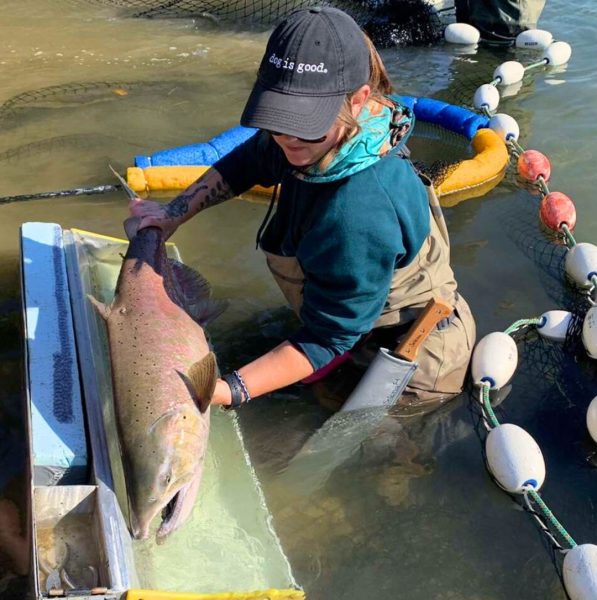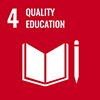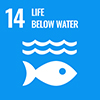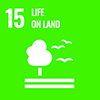From childhood days fishing on Okanagan waters with her family to conducting graduate research that contributes valuable insights toward the recovery of wild salmon populations, Selena Carl has followed in her late father’s footsteps, turning a shared love of the ocean and its fish into her own purpose-driven passion.
Now a Master of Science in Environmental Science student at Thompson Rivers University (TRU), Carl has been recognized by the Pacific Salmon Foundation, receiving a $2,500 Stewardship Community Bursary for her work to improve survival for endangered juvenile chinook salmon in the Okanagan.
Driven by a lifelong appreciation for salmon and the ecosystems that sustain them, Carl has built her knowledge through hands-on field experience with Fisheries and Oceans Canada, where she worked as a stock assessment technician, and with the Okanagan Nation Alliance at the kł cp̓əlk̓ stim̓ hatchery, where she supported hatchery operations and contributed to the Fish in Schools education program.
Purpose-driven research

Selena Carl (Photo courtesy of the Pacific Salmon Foundation)
At TRU, Carl’s master’s research examines how endangered sub-yearling juvenile chinook navigate the Okanagan watershed and what factors influence their survival. Her work is helping fill critical knowledge gaps about freshwater habitat use, migration patterns and the environmental stressors affecting young salmon on their journey to the ocean.
“It’s truly been a rollercoaster throughout my masters, but I can say with certainty there is nowhere else I would rather be,” says Carl. “I’m more in love with the project and the fisheries field than when I started.
“From my time at the kł cp̓əlk̓ stim̓ hatchery, I learned about the importance of the Okanagan chinook to the Syilx Okanagan Nation, and I’m incredibly honoured to be part of a project that works with a culturally and ecologically significant species.”
Carl’s research is deeply collaborative, involving partnerships with Indigenous communities, local conservation organizations and fisheries biologists, reflecting TRU’s commitment to community-engaged, applied research. Her fieldwork combines modern scientific techniques, such as acoustic telemetry, with traditional ecological knowledge to identify where habitat restoration could have the greatest impact.
“Selena’s work exemplifies the kind of research that makes TRU proud,” says Brian Roy, acting vice-president research. “Her project demonstrates how science and traditional knowledge can come together to address complex environmental challenges in a way that supports both ecosystems and communities.
“This recognition from the Pacific Salmon Foundation underscores the impact our graduate students are making beyond the university.”
The Pacific Salmon Foundation award supports emerging researchers across B.C. who are advancing the stewardship and conservation of wild salmon populations.
Carl hopes her findings will contribute to improved management strategies for Okanagan chinook, a population listed under Canada’s Species at Risk Act, and inspire others to get involved in protecting Pacific salmon.
Thompson Rivers University is leading in sustainability. Learn more about TRU’s contributions to the UN Sustainable Development Goals.





